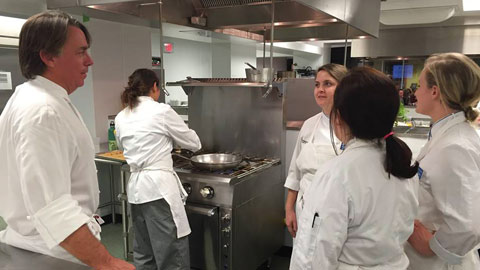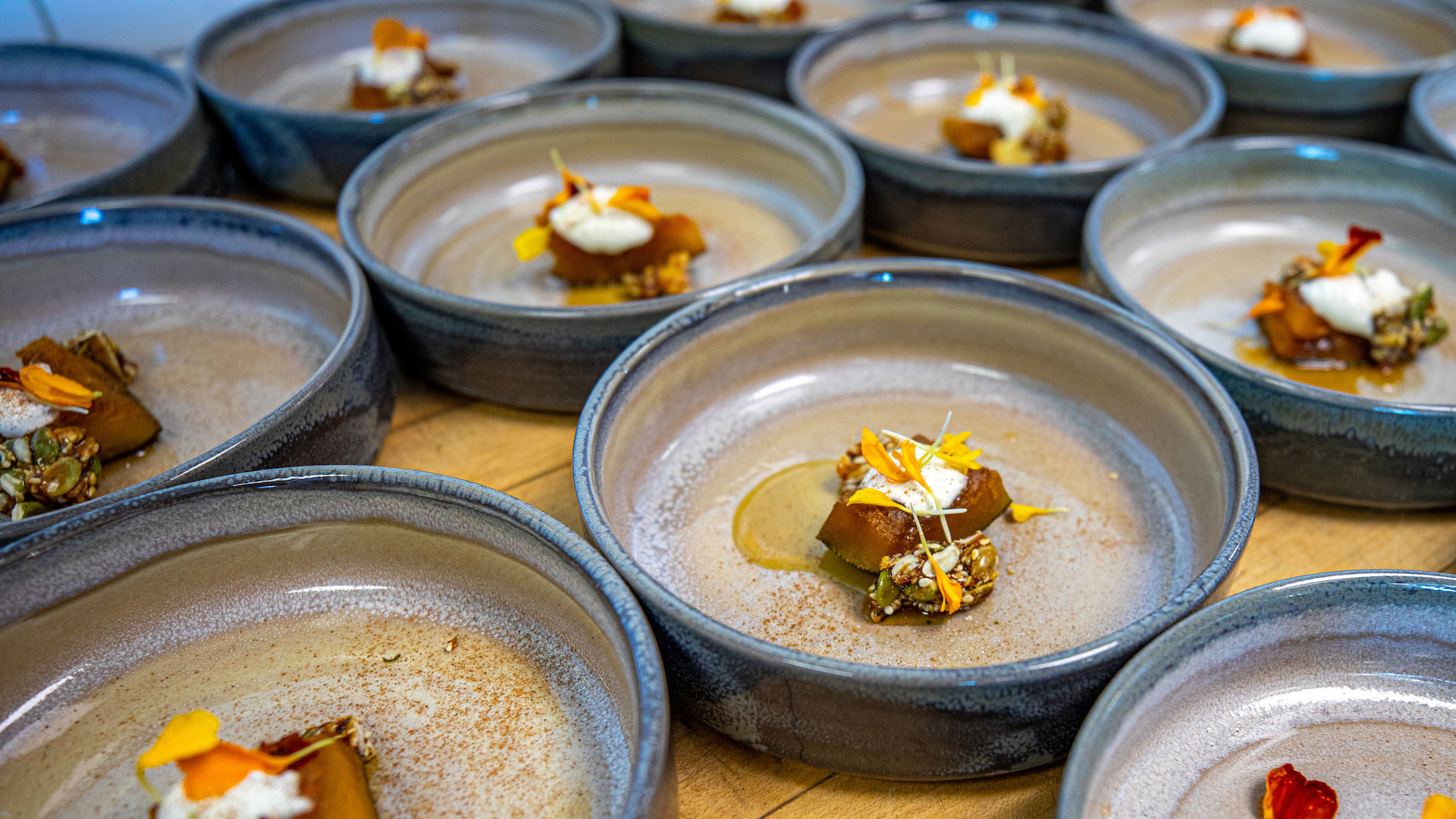Tulane, JWU Culinary Medicine Collaboration

Johnson & Wales University and Tulane University School of Medicine have announced a groundbreaking long-term collaboration that unites doctors and chefs in improving the nation’s health through the teaching of culinary medicine.
For the first time, a medical school and a major culinary institution plan to implement a fully integrated, comprehensive joint curriculum for doctors, medical students, chefs and the community focused on the significant health role that food choices and culinary nutrition play in preventing and managing obesity and associated diseases in America.
Changing the Way Health Practitioners Think About Food
“This is an entirely new approach in the training of both physicians and chefs,” said Dr. Benjamin Sachs, senior vice president and dean of Tulane University School of Medicine.
“Our goal is to change the way health practitioners think about food and the practice of medicine."
"With statistics showing that 65% of Americans are overweight and a third are obese, it’s not enough for doctors to know just the basics of nutrition. They must also learn to translate the science into practical lessons that empower their patients to lead healthier lives.”
Master’s in Culinary Nutrition
The initial program, which includes culinary classes for medical students, will be based at Tulane University, with the collaboration’s long-term goal to establish others first at JWU’s flagship campus in Providence, and in the future at JWU’s North Miami, Denver and Charlotte Campuses.
The comprehensive plan is to include seminars, internships, faculty training, curricular offerings, community outreach, research and, ultimately, the development of a master’s degree in culinary nutrition at JWU’s JWU College of Food Innovation & Technology and a rotation in culinary nutrition for Tulane medical students.
Culinary Medicine
“Elevating the overall role of nutrition, including the preparation of nutritious meals, is vital in disease management and prevention,” said Karl Guggenmos, MBA, AAC, JWU’s university dean of culinary education.
“Our collaboration with Tulane will address many aspects of culinary medicine, including mitigating the risks of food allergies and preparing culturally sensitive nutritious meals, with the long-term goal of improving public health. We will also underscore the central importance of the Culinary Arts in this process, in terms of making healthy food that is also delicious and pleasing to eat.”
Several aspects of the collaboration are in place, including:
- Joint faculty seminars for students at both universities
- Internships at Tulane for JWU’s culinary nutrition student
- Healthy culinary classes for the New Orleans community involving students from both schools
With chefs and physicians side-by-side in the kitchen, clinic and community, this collaboration offers a unique opportunity for substantive change in the way medicine and the culinary arts are practiced in the United States — a major step in attacking the problem of obesity in America.



